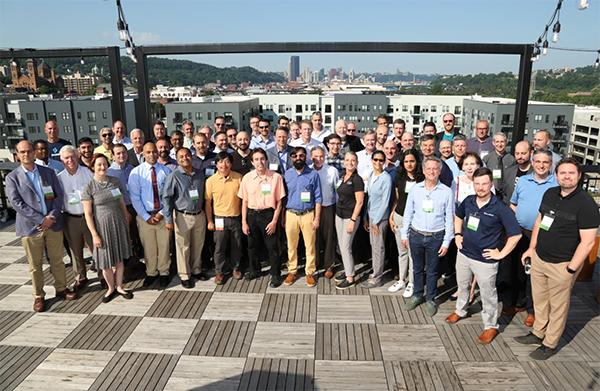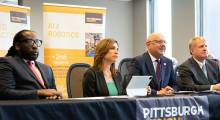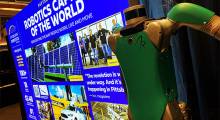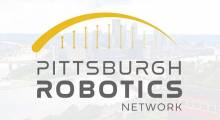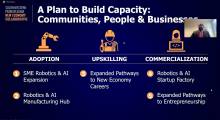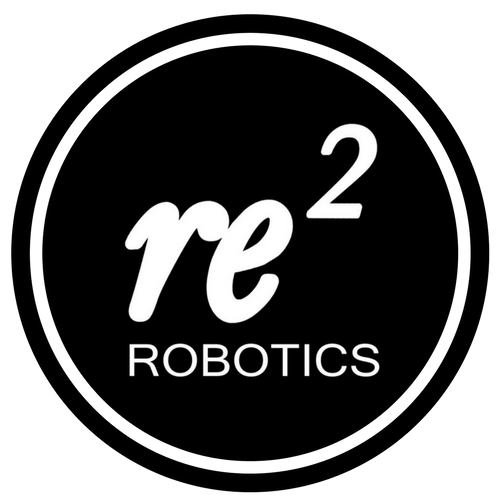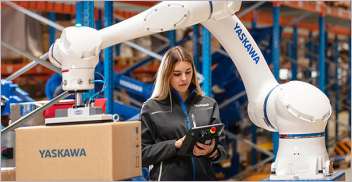Pittsburgh's technological and industrial renaissance continues. The Pittsburgh Robotics Network today said that it now has more than 100 members, making Pittsburgh home to one of the world’s most dynamic robotics and artificial intelligence ecosystems.
“We have created one of the world’s largest platforms where top robotics and AI companies work together,” said Joel Reed, executive director of the Pittsburgh Robotics Network (PRN). “We’re a community of innovators, builders and makers determined to solve the world’s toughest problems. The PRN bridges this community to growing pools of worldwide talent, emerging industry networks, investors, and users of autonomous solutions.”
The PRN said its mission is to accelerate the adoption of robotics by helping the community connect with the world. The alliance brings together leaders from top robotics companies, research institutions, and universities in region, including Carnegie Mellon University (CMU), RE2 Robotics, Neya Systems, Carnegie Robotics, HEBI Robotics, Near Earth Autonomy, BirdBrain Technologies, Omnicell, and Advanced Construction Robotics.
Grant marks formal launch
The Richard King Mellon Foundation celebrated PRN's membership milestone with a grant of $125,000 to support its continued growth. The grant is part of its newly launched “2021-2030 Strategic Plan,” which aims to foster business growth for a diverse pool of talent in specific industry clusters.
“The Pittsburgh Robotics Network will help position Pittsburgh as a national and worldwide robotics center – helping to attract new businesses, create new jobs, and connect diverse talent pools to those new opportunities,” said Sam Reiman, director of the Richard King Mellon Foundation. The foundation also last month approved a $75 million grant to build a new robotics center at CMU.

The PRN was formed in 2016 for the purpose of building a connected community and leveraging shared resources. In 2020, the PRN expanded its mission to enhance Pittsburgh’s standing in the worldwide robotics community and advance robotics and AI technologies globally.On June 29, nearly 100 representatives of leading organizations in the Pittsburgh area convened to officially launch the PRN. Speakers included Allegheny County Executive Rich Fitzgerald; Pittsburgh Mayor Bill Peduto; Martial Hebert, dean of the School of Computer Science at CMU; and Kevin Dowling, CEO of Kaarta.
Putting PRN on the global robotics map
Since 2012, $3.3 billion in venture capital and private equity has been invested in Pittsburgh’s robotics firms, and nearly 600 patents have been awarded for robotics-based innovation, said the PRN.
In addition, Pittsburgh is home to CMU, which founded the world’s first robotics Ph.D. program in 1988 and said its Robotics Institute is the world’s largest robotics research and development organization. The institute includes the National Robotics Engineering Center (NREC), which has been conducting research into practical industry applications for robotics for over 25 years.
“As Pittsburgh secures its spot as one of the largest robotic ecosystems in the world, the region hosts businesses and talent that will make a lasting impact on how the future of society operates,” said Hebert.
Pittsburgh also offers a robust talent pool with 12,000 technology degrees and certificates awarded annually, ranking as one of the top five cities in the U.S. for college students. The University of Pittsburgh produces engineers and scientific research from the Swanson School of Engineering and School of Computing and Information.
“The research and innovation community at the University of Pittsburgh is excited to collaborate and learn from other members of the network,” said Rob A. Rutenbar, the University of Pittsburgh’s senior vice chancellor for research. “With our world-class engineering, computer science, and information science capabilities, and our region’s reputation as a global leader in the industry, this alliance will help us continue to drive innovation in robotics and build the economy of the future.”

In the past five years, the technology talent pool in Pittsburgh has grown by 20%, with over 45,000 workers in the industry, said the PRN. In Pittsburgh’s robotics sector, employment has grown by 300% since 2011, it added.
“Even through the pivots resulting from COVID-19, this past year proved once again that whether you’re interested in robotic solutions that feed the world (agriculture), travel without a human driver (autonomous vehicles), innovate retail (logistics), or exploration to the moon (aerospace), you’ll find world-changing solutions being catalyzed right here in Pittsburgh,” stated Reed.
Self-driving cars pioneers in Pittsburgh
Pittsburgh has been dubbed as the birthplace of self-driving car development, which dates to CMU’s research in the 1980s, and it is home to Aurora, which recently acquired Uber’s Advanced Technology Group (ATG).
“As a longstanding center of innovation, we are proud to call Pittsburgh home and to work alongside the region’s diverse talent and technology industry leaders to create real value for everyday applications, including mobility and transportation,” said Peter Rander, co-founder and president of Argo AI, which is working with Ford and Volkswagen to launch autonomous ride-hailing and delivery services. The autonomous vehicle company has grown its team to more than 500 in Pittsburgh and 1,300 worldwide since it was founded in 2016.
“In addition to leading talent, more and more business transactions are occurring in the region, with support from global players like J.P. Morgan and Dentons’ Global Venture Technology Group,” Reed said. “Leaders such as these have made strategic investments in Pittsburgh to help accelerate the introduction of robotic solutions in many different business markets that face unprecedented and historic labor shortages.”
Article topics
Email Sign Up

